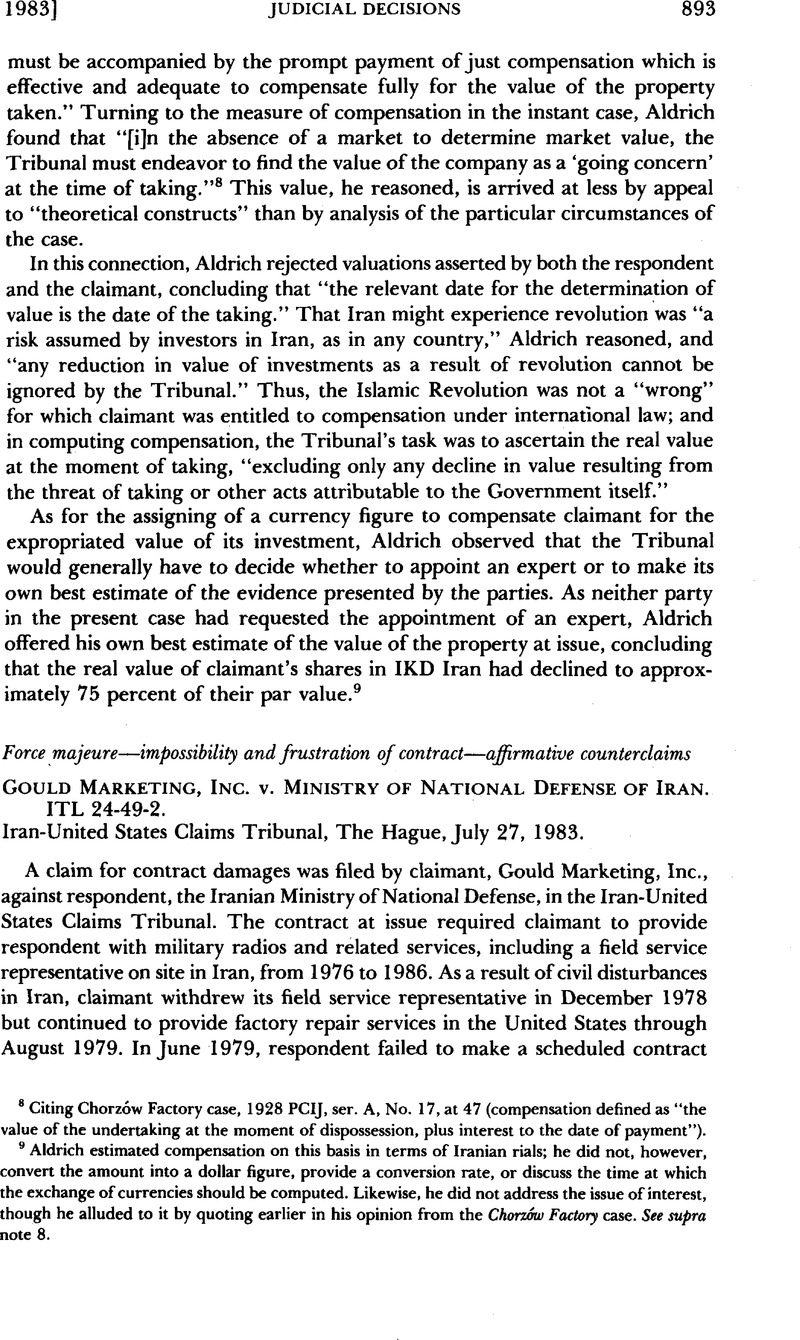No CrossRef data available.
Published online by Cambridge University Press: 27 February 2017

1 Article 32(1) of the Tribunal’s Rules of Procedure authorizes the Tribunal to make “interim, interlocutory, or partial awards,” in addition to final awards.
2 Mr. Shafie Shafeiei, the Iranian member of Chamber Two, did not sign the award. In a statement appended to the award, Messrs. Bellet and Aldrich noted his absence. This statement recounts that Shafeiei had been notified of the Chamber’s intention to devote the month of July to “final deliberations in this and the other pending cases, in view of the 1 August effective date of Chairman Belief’s resignation from the Tribunal.” Noting that Shafeiei had absented himself, leaving no address or telephone number where he could be reached, Bellet and Aldrich stated that “an arbitral tribunal cannot permit its work to be frustrated” and issued the award without Shafeiei’s signature.
3 For background information on the Claims Settlement Agreement, see 77 AJIL 642 (1983).
4 AWD 46–57–2 (May 25, 1983) (Chamber 2).
5 See Case Concerning Jurisdiction of the Tribunal with Respect to Claims by the Islamic Republic of Iran against Nationals of the United States of America, No. A/2 (Dec. 21, 1981) (Full Tribunal).
6 Emphasis added.
7 In this respect, the Chamber observed in passing that the Islamic Republic was “to some extent in control of the direction of the revolution” during the months February through June 1979; it concluded, however, that claimant had failed to establish that such force majeure conditions had been transformed during those months into conditions sufficiently attributable to Iran to make its nonpayment in June 1979 a breach of contract.
8 Chamber Two has scheduled oral argument on these questions for Oct. 29, 1983.